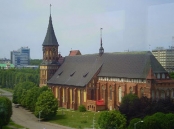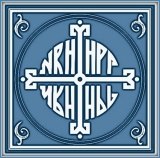Kaliningrad

The historical fate of Kцnigsberg-Kaliningrad and its economic and cultural capacity are of European significance. The unique historical experience of the city, its specific geopolitical situation and inimitable architecture are important factors in social, economic and cultural development of the city and the region on the whole.
The Kцnigsberg Castle was founded in 1255 during the expansion of the Teutonic Order to Baltic lands.
In new times Kцnigsberg played an important role in European international relations. Here the first protestant (Lutheran) state – the Duchy of Prussia – was established in 1525. The Kцnigsberg University founded in 1544 immediately became a centre of attraction for academic and cultural figures from Poland and Lithuania. Now infrequently Kцnigsberg was in the epicentre of pan-European wars: Seven Years’ War, Napoleonic Wars, World Wars I and II. The city has become a melting pot for different cultures and traditions and a shelter for people of various nationalities.
The great philosopher Immanuel Kant (1724-1805) was born and lived all his life here. The outstanding German writer Ernst Theodor AmadeusHoffmann (1776-1822) was born and studied in Kцnigsberg. The city was the residence of the philosophers Johann Gottfried von Herderand Johann Gottlieb Fichte, astronomer Friedrich Bessel, naturalist Karl Ernst von Baer andcomposerRichard Wagner.
The positionofKцnigsberg as an ice-free port in the Baltic Sea played a key role in its history. In 1945 by the decision of the Potsdam Conference, Eastern Prussia became part of the Russian Federation and on July 4, 1946 the city was given its new name of Kaliningrad and started a new chapter in its history.
In 2005 Kaliningrad celebrated its 750th anniversary, which became a significant national and international event.


